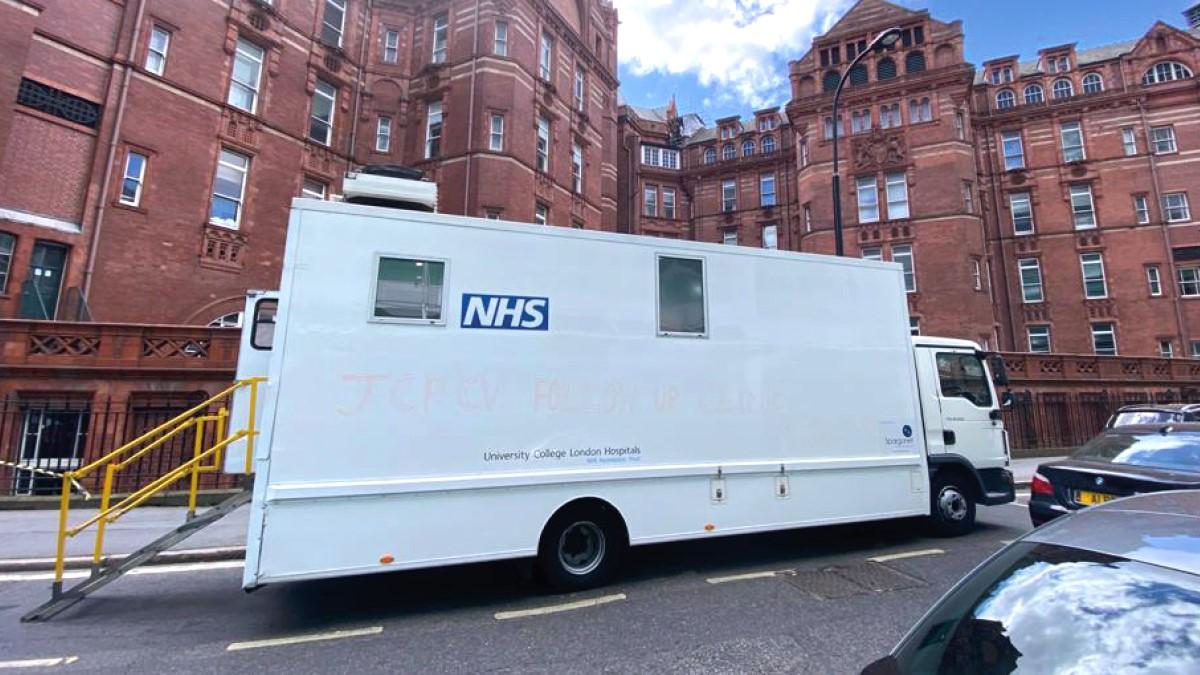How do you treat a disease you do not understand, with a service that does not exist, when strung by social distancing restrictions?

That is the question, I and so many others, had to try and answer earlier this year. Luckily, I had excellent help from respiratory medicine and infectious diseases colleagues. The answer was all about innovation, adaptability, collaboration and multi-professional working. With physiotherapy at the core.
When we set up our post-Covid clinic in May our outpatient department was being used to store PPE, colleagues were reeling from time spent opening a high dependency respiratory unit, working on the expanded critical care unit, and many were lending a hand, on top of their normal duties. We knew however, with a new and poorly understood virus, that we needed to see these patients face to face, and that the clinic could not wait. So we set up our clinic in a van parked on the street outside the hospital.
This “Find and Treat” mobile unit is usually used to diagnose vulnerable people in the community.
Patients were followed up after discharge from hospital but we also took direct referrals from GPs. They were offered a structured assessment by doctor and physiotherapist. Many had difficult ongoing breathless and fatigue. So we looked for new breathing pattern disorders, assessed for desaturation with a sit-to-stand test, and educated them on how to manage their fatigue. After meeting with AHP colleagues, we developed a screening tool that encompassed many symptoms and mapped services both in the hospital and community, into which we could refer patients.
It’s been a steep learning curve. The presentation of symptoms remains heterogeneous. But our clinic is now being used as a model nationally – having been helpfully championed, by NHS chief executive Simon Stevens and health secretary Matt Hancock. And we’re thankfully no longer in a van!
My three key reflections are that:
- investigation – including face-to-face assessment – is a key part of people’s recovery process, even if results come back normal. It guides rehabilitation and referral, reassures and supports mental health.
- collaboration across services, in the hospital and the community, enables shared learning and a deeper understanding of the virus, and its effects.
- as physiotherapists, our varied training and range of experience is incredibly valuable in assessing and treating a multisystem condition like this.
We have barely scratched the surface in understanding Covid-19, and there is a huge task ahead rehabilitating those who are recovering. But I am inspired by what we have achieved and how central physiotherapy has been to achieving it. In a year of uncertainty, we have risen to the challenge and demonstrated the true value of our profession.
- Rebecca Livingston, clinical lead respiratory physiotherapist, University College London Hospitals NHS Trust
Number of subscribers: 1




































